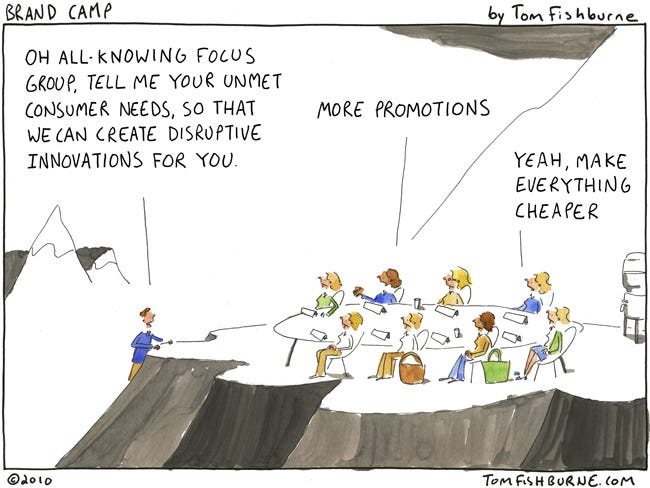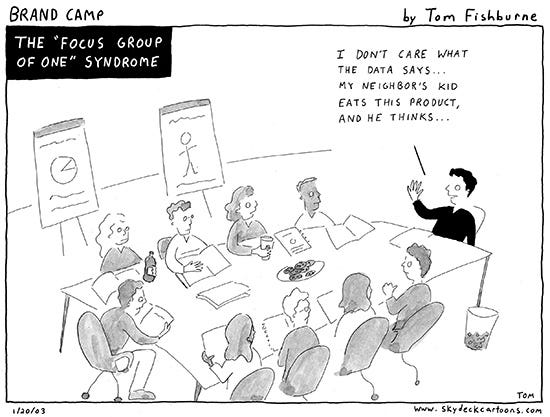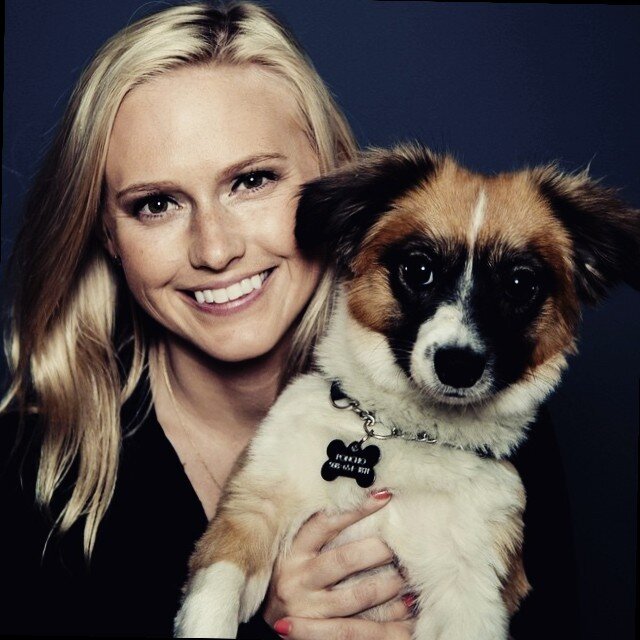I’ll say it: focus groups suck
Let’s put a bunch of people in a room, they said. It will be fun, they said.

Focus groups are still one of the most highly debated user research methodologies. In my time within this field, I have met people who either hate them or believe them to be effective. There really isn’t an in-between or grey area with focus groups. What are focus groups? A group of people assembled by a company to participate in a discussion about said company or product. Ideally, the company will obtain feedback in order to help determine any changes, improvements or innovations.
As you may have gathered from my title, I find them less than ideal. I have really tried to make them work, but the times I have used them, I have slowly watched them fizzle into a pile of nonsense and waste of everyone’s time. I mean, they seem as though they could be so efficient and full of insights, but try as I might, the cons always seem to outweigh any benefits.
For those of you who are focus group enthusiasts, I promise I am not trying to rain on your group parade. Instead, I am merely pointing out some negative effects of focus groups that could skew data, causing a company to go in the wrong direction and, subsequently, swear off future user research. And, of course, offer a potential solution (because what would a product article be without solutionizing).
Groupthink
Groupthink is a very unconscious and common practice that occurs when people come together to have group discussions. Oftentimes, the participants in the groups will conform to other’s opinions in order to perpetuate harmony, which can potentially override individual’s thoughts or feelings. This ties back into the concept of the social desirability bias, which unconsciously pushes people to answer questions in a way that deems them more favorable to others.
As an example, say you bring up a new feature or an improvement your company wants to explore with the group. If a few people in the group find this feature or improvement favorable, and voice their opinions, there is a high chance the rest of the group will tend to agree, even if they think the feature is useless to them.
The reason we conduct user research is to talk to a wide variety of users who have differing opinions on what they need or what goals they are trying to achieve from a product. Groupthink tends to discourage creativity and individuality, leading to repetitive and, potentially, skewed results. These results could encourage companies to launch a feature that isn’t used by the majority of their user-base.
Solution-focused
As a user researcher, you really want to understand the motivations behind why users want what they say they want. In focus groups, it is very difficult to uncover these underlying thoughts. When people get together for a focus-group, the immediate nature is to come up with a solution, or for participants to say what they want from you, instead of how they would actually use the product or the goals they are trying to achieve with the product.
Being in a group doesn’t facilitate deep, analytical conversation. You can only understand so much about one participant’s perspective before another participant jumps in to elaborate or you have to move on to the next topic.
Focus Group of One Syndrome

The focus group of one syndrome doesn’t only happen in focus groups, we see this kind of behavior in meetings and classrooms as well. In the context of a focus group, one person tends to steer the conversation with his/her thoughts, feelings and opinions. This type of domineering personality can be detrimental to a focus group, as it can predominate the entire conversation and leave the results heavily biased by one or two strong opinions. This can negate the the views of the less articulate or more reserved personalities. In the end, what you ended up with is results from one or two people, as opposed to the larger group you were aiming for.
Conflicting Personalities
When you bring together a group of people, for whatever reason, there is always the potential for conflicts to arise between personalities. Maybe you have two strongly opinionated people, whose views are at opposite ends of the spectrum. While this could be valuable information, it could also lead to fights or participants speaking over each other. This opposition can quickly detract from the interview and lead to a fight for power, in which the two conflicting participants overtake the interview with an argument.
Is there a solution? Unfocused groups
The goal of the unfocus group is to get a broader range of opinions and feedback about a product. During this time, the participants are told they will be having an open-ended conversation about a very loose objective, such as the intersection between communication, medical information and technology (or whatever your company is trying to understand). You bring in participants who are on the tails of the normal distribution curve, in order to gather more diverse feedback.
The combination of this more “unusual” group and the ability to have a real, open-ended conversation with little agenda, there is a higher potential for more creativity and true insights to emerge. Although the ideas may be more lofty or may not fit exactly with the company’s vision, you can pull the ideas back a bit to see if they can serve the bigger market.
It isn’t a fool-proof solution, but it offers another alternative to using the traditional focus groups, and may give you actionable, more innovative results.
[embed]https://upscri.be/50d69a/[/embed]
